
Stormbringer is the ninth studio album by English rock band Deep Purple, released in November 1974. It was the band's second studio album to feature the Mk III lineup including vocalist David Coverdale and bassist/vocalist Glenn Hughes.
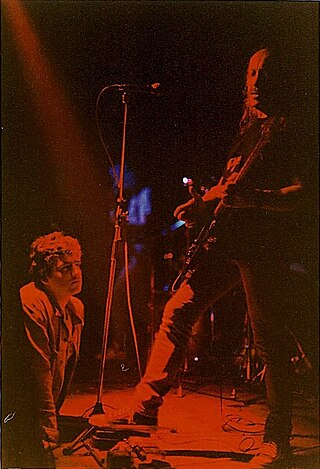
Anthony Charles McPhee was an English guitarist and singer. He was the founder of the British blues and rock band the Groundhogs.

Mob Rules is the tenth studio album by English heavy metal band Black Sabbath, released in November 1981. It followed 1980's Heaven and Hell, and was the second album to feature lead singer Ronnie James Dio and the first with drummer Vinny Appice. Neither musician would appear on a Black Sabbath studio album again until the 1992 album Dehumanizer.

Heaven and Hell is the ninth studio album by English heavy metal band Black Sabbath, released on 18 April 1980. It is the first Black Sabbath album to feature vocalist Ronnie James Dio, who replaced original vocalist Ozzy Osbourne in 1979.
Martin Birch was a British music producer and sound engineer. He became renowned for engineering and producing albums recorded predominantly by British rock bands, including Deep Purple, Rainbow, Fleetwood Mac, Whitesnake, Black Sabbath, Blue Öyster Cult, and Iron Maiden.

The Groundhogs were an English blues and rock band founded in late 1963, that toured extensively in the 1960s, achieved prominence in the early 1970s, and continued sporadically into the 21st century. Tony McPhee was the sole constant member of the group, which had gone through many personnel changes, but usually recorded and performed as a power trio. The band was active from 1963 until retiring in 2014.

Generation X is the first studio album by English punk rock band Generation X, produced by Martin Rushent, it was released in the United Kingdom on 17 March 1978.

The Rose is the soundtrack to the feature film of the same name starring Bette Midler which was released in 1979.

Can't Get There from Here is the ninth studio album by the American hard rock band Great White, released in 1999. The track "Rollin' Stoned" was released as a promo single and received airplay on mainstream rock radio.

Vive Le Rock is the third solo album by Adam Ant, released in September 1985.

Rock Art is the 11th studio album by the English rock band Magnum and was released in 1994 by EMI. It was the last album released by the band's first incarnation.
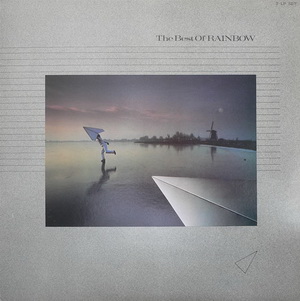
The Best of Rainbow is the first compilation album from British hard rock group Rainbow, released in 1981.

Scratching the Surface is the debut album by English band Groundhogs, released in 1968 by Liberty Records.

Evita is a concept album released in 1976 and produced by Andrew Lloyd Webber and Tim Rice. Having successfully launched their previous show, Jesus Christ Superstar, on record in 1970, Lloyd Webber and Rice returned to the format for Evita. The album was recorded at Olympic Studios in London from April to September 1976 and released in the United Kingdom on 19 November 1976.

Hogwash is a 1972 album recorded by The Groundhogs, originally released by United Artists Records in 1972, catalogue number UAG 29419. The most recent CD reissue is that of 2008 by BGO Records, catalogue number BGOCD787.

Who Will Save the World? The Mighty Groundhogs is a 1972 album recorded by The Groundhogs, originally released by United Artists Records in 1972, catalogue number UAS-5570. The most recent CD reissue is that of 2003 by EMI Records, catalogue number 07243-584815-2-5.
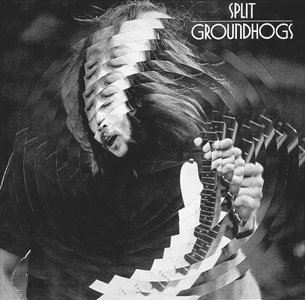
Split is a studio album recorded by English blues rock group Groundhogs in November 1970 and released in March 1971.
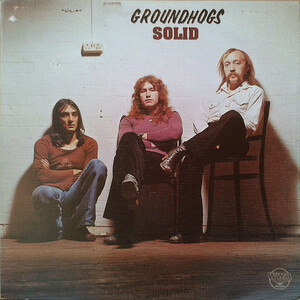
Solid is a 1974 album recorded by the Groundhogs, originally released by WWA Records. It was arranged, composed, engineered and produced by band member Tony McPhee. It entered the UK album charts in July 1974 reaching number 31 but remained in the charts for only one week.
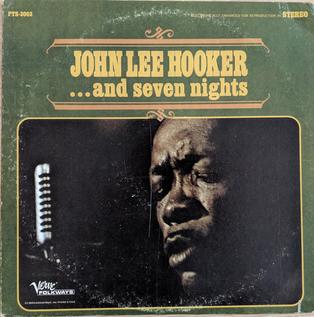
...And Seven Nights is an album by the blues musician John Lee Hooker. It was recorded in London in 1964 and released by the Verve Folkways label the following year. Hooker plays with the British band the Groundhogs. The album was re-released with the title Hooker and the Hogs and with overdubbed horns as On the Waterfront.

Live at Leeds '71 is a live album by The Groundhogs. It records the show at The Rolling Stones UK Tour 1971. It started as a promo release in 1971. 100 copies were sent out to US radio stations. The live set was documented and pressed in a very limited edition at the behest of Mick Jagger. It was reissued as a part of 1984's "Hogging the Stage" album and reissued separately in Italy in 1998 and got EU release by EMI in 2002.

















